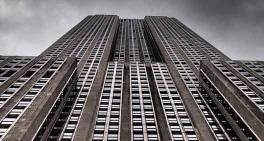Another key redistricting case goes in front of high court
Law Journals
The Supreme Court has already heard a major case about political line-drawing that has the potential to reshape American politics. Now, before even deciding that one, the court is taking up another similar case.
The arguments justices will hear Wednesday in the second case, a Republican challenge to a Democratic-leaning congressional district in Maryland, could offer fresh clues to what they are thinking about partisan gerrymandering, an increasingly hot topic before courts.
Decisions in the Maryland case and the earlier one from Wisconsin are expected by late June. The arguments come nearly six months after the court heard a dispute over Wisconsin legislative districts that Democrats claim were drawn to maximize Republican control in a state that is closely divided between the parties.
The Supreme Court has never thrown out electoral districts on partisan grounds and it’s not clear the justices will do so now. But supporters of limits on partisanship in redistricting are encouraged that the justices are considering two cases.
“In taking these two cases, the Supreme Court wants to say something about partisan gerrymandering. It’s clear the Supreme Court is not walking away from the issue,” said Michael Li, senior counsel at the New York University law school’s Brennan Center for Justice.
The justices’ involvement in partisan redistricting reflects a period of unusual activity in the courts on this topic. Over the past 16 months, courts struck down political districting plans drawn by Republicans in North Carolina, Pennsylvania and Wisconsin. Federal judges threw out a state legislative map in Wisconsin and a congressional plan in North Carolina. In Pennsylvania, the state Supreme Court invalidated the state’s congressional districts and replaced them with a court-drawn plan.
Related listings
-
Supreme Court takes up challenge by crisis pregnancy centers
Law Journals 03/27/2018The Supreme Court is hearing arguments in a free speech fight over California's attempt to regulate anti-abortion crisis pregnancy centers.The case being argued Tuesday involves information required by a state law that the centers must provide client...
-
Appeals court weighs resuming pipeline project in Louisiana
Law Journals 03/17/2018A company building a crude oil pipeline in Louisiana is asking a federal appeals court to allow it to resume construction work in an environmentally fragile swamp.A three-judge panel from the 5th U.S. Circuit Court of Appeals is scheduled to hear arg...
-
Supreme Court declines to take up 'Dreamers' case for now
Law Journals 02/28/2018The Supreme Court on Monday rejected the Trump administration's highly unusual bid to bypass a federals appeals court and get the justices to intervene in the fate of a program that protects hundreds of thousands of young immigrants from deportation....

USCIS to Begin Accepting Applications under the International Entrepreneur Rule
U.S. Citizenship and Immigration Services (USCIS) announced today it is taking steps to implement the International Entrepreneur Rule (IER), in accordance with a recent court decision.
Although the IER was published during the previous administration with an effective date of July 17, 2017, it did not take effect because the Department of Homeland Security (DHS) issued a final rule on July 11, 2017, delaying the IER’s effective date until March 14, 2018. This delay rule was meant to give USCIS time to review the IER and, if necessary, to issue a rule proposing to remove the IER program regulations.
However, a Dec. 1, 2017, ruling from the U.S. District Court for the District of Columbia in National Venture Capital Association v. Duke vacated USCIS’ final rule to delay the effective date. The Dec. 1, 2017, court decision is a result of litigation filed in district court on Sept. 19, 2017, which challenged the delay rule.




